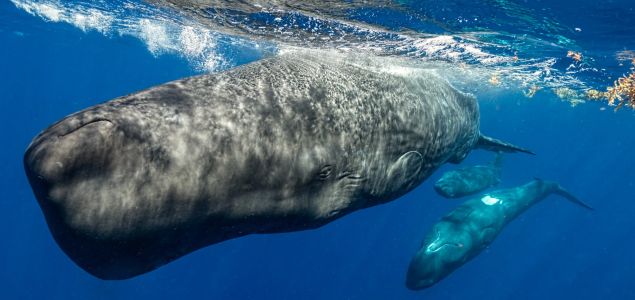
Photo: Amanda Cotton/Project CETI
Recently, researchers have used machine learning to decode a “sperm whale phonetic alphabet,” revealing sophisticated structures in sperm whale communication akin to human phonetics and communication systems in other animal species.
For centuries, sailors have heard the sounds made by whales, reverberating through the hulls of wooden ships. Arctic whalers dubbed beluga whales the “canaries of the seas” for their clicks, chirps, and whistles. Nevertheless, it was long thought that whale noises were nothing more than expressive sounds or calls.
Then, over the last half-century, scientists began to study the haunting whale song of humpbacks, as well as the varied vocalizations of other whale species.
In a new open-access study by the MIT Computer Science and Artificial Intelligence Laboratory (CSAIL) and Project CETI (Cetacean Translation Initiative), published in Nature Communications, the research shows that sperm whales codas, or short bursts of clicks that they use to communicate, vary significantly in structure depending on the conversational context, revealing a communication system far more intricate than previously understood.
The team analyzed recordings of 8,719 codas from around 60 whales collected by the Dominica Sperm Whale Project between 2005 and 2018, using a mix of algorithms for pattern recognition and classification. They found that the way the whales communicate was not random or simplistic, but structured depending on the context of their conversations. This allowed them to identify distinct vocalizations that hadn’t been previously picked up on.
“Investigating a dataset collected across over a decade of nearly 9,000 codas from the sperm whale families of the Eastern Caribbean clan, our results show that these whales have a more complex combinatorial communication system that demonstrates rubato and ornamentation, in which whales make sub-second adjustments to match one another as they converse and add extra clicks to known coda types depending on the context within their conversations,” said Dr Shane Gero, Biology Lead of Project CETI and co-founder of the Dominica Sperm Whale Project, in statement sent to IFLScience.
Exploring the Mysterious Alphabet of Sperm Whales
Thanks to Dick Kooyman for contributing to this post.
